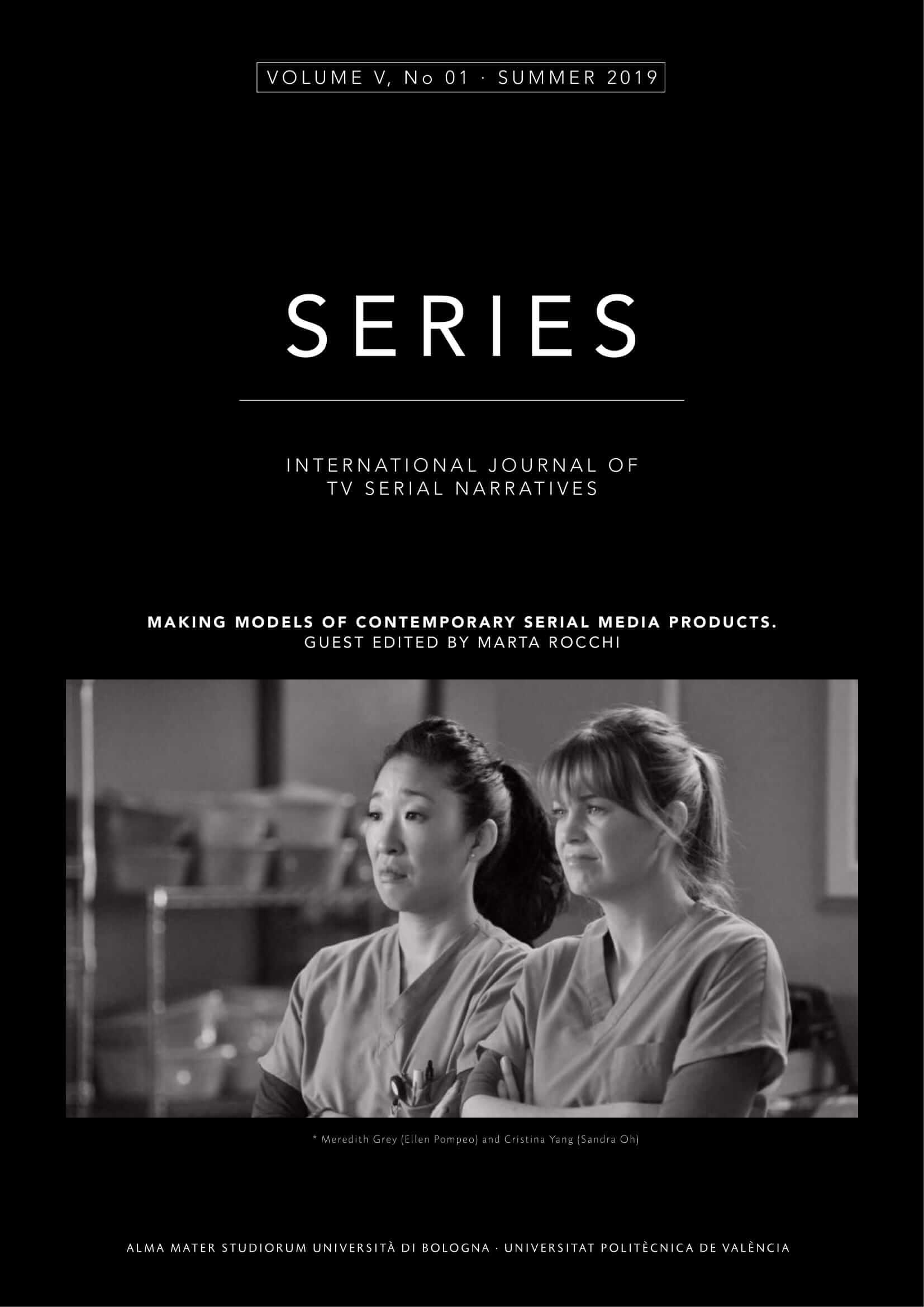Introduction: Making models of contemporary serial media products
DOI:
https://doi.org/10.6092/issn.2421-454X/9715Palabras clave:
tv series, qualitative models, narrative ecosystemsCitas
Bougiatiotis, Konstantinos, and Theodoros Giannakopoulos (2016). “Content representation and similarity of movies based on topic extraction from subtitles.” In Proceedings of the 9th Hellenic Conference on Artificial Intelligence. https://doi.org/10.1145/2903220.2903235.
Hennig-Thurau, Thorsten, and Mark B. Houston (2019). Entertainment Science. Data Analytics and Practical Theory for Movies, Games, Books, and Music. Cham: Springer.
Hoffman, Beth L. et al. (2018). “Use of Twitter to Assess Viewer Reactions to the Medical Drama, Code Black”. Journal of health communication 23(3): 244-53. https://doi.org/10.1080/10810730.2018.1426660.
Noordegraaf, Julia (2016). “Computational Research in Media Studies: Methodological Implications.” Kwalon 21(1): 52–9.
Ross, Michael, Manfred, Grauer, and Bernd Freisleben (eds.) (2009). Digital tools in media studies. Analysis and research. An overview. Berlin: transcript.
Michael, D. Smith and Rahul Telang (2016). Streaming, Sharing, Selling: Big Data and the Future of Entertainment Industries. Cambridge: MIT Press.
Descargas
Publicado
Cómo citar
Número
Sección
Licencia
Derechos de autor 2019 Marta Rocchi
Esta obra está bajo una licencia de Creative Commons Atribución 4.0 Internacional (código legal completo).
Véase también nuestra Open Access Policy.





